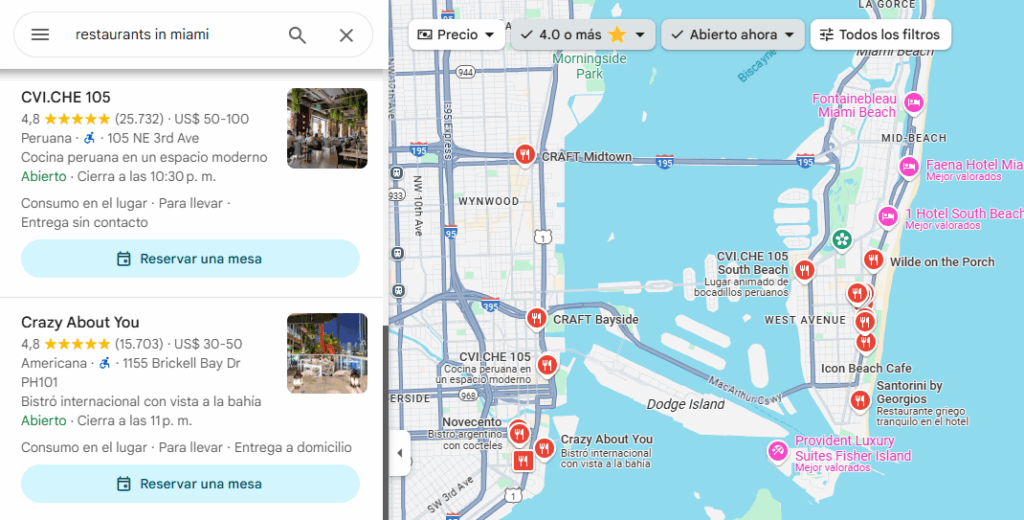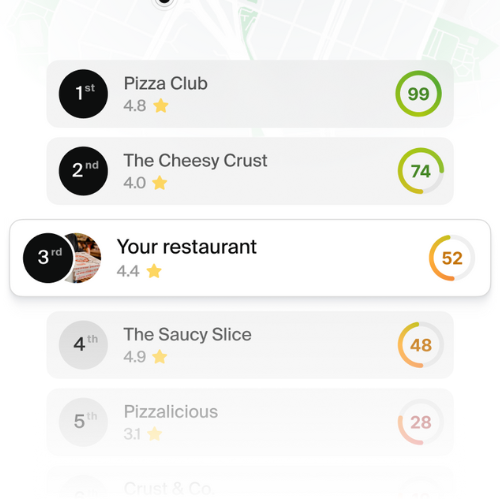Introduction: Dispelling Local SEO Misconceptions
For small businesses, getting found online often comes down to how well you handle local SEO. But there are a lot of myths out there that can lead you in the wrong direction. In this article, we’ll break down some of the most common misconceptions and share simple, practical tips to help you show up better in local searches and bring in more customers. Clearing up these myths is a great first step toward building a stronger local presence.

1. Incomplete or Inaccurate Google Business Profiles
A common myth is that just setting up a basic Google Business Profile is enough. Some small business owners think listing their name and address does the trick. But that’s not the case — an incomplete or outdated profile is a missed opportunity when it comes to local SEO for small businesses. A well-optimized profile is key to standing out in search results and attracting local customers.
Optimizing Your GMB Profile
To truly maximize your GBP presence, a comprehensive and meticulously maintained profile is essential. This includes:
- Complete Information: Ensure all fields are filled out, including business hours, phone numbers, website, and a detailed description. Inconsistencies can confuse search engines and potential customers.
- Accurate Categories: Selecting the most relevant primary and secondary categories helps Google understand your business and show it for appropriate searches.
- High-Quality Photos: Businesses with photos on their GMB profiles receive more requests for directions and website clicks. Regularly upload new, high-quality images of your products, services, and premises.
- Google Posts: Utilize GBP’s posting feature to share updates, offers, events, or news. These posts appear directly on your profile and can significantly boost engagement and visibility for local SEO for small businesses.
- Services/Products Section: Detail the services or products you offer. This provides additional keyword opportunities and clarifies your offerings to searchers.
An optimized GBP acts as your digital storefront, guiding local customers directly to your business.

2. Ignoring or Mishandling Reviews
A common misconception is that customer reviews are merely a vanity metric or that negative reviews are impossible to recover from. In reality, online reviews are a cornerstone of effective local SEO for small businesses and play a pivotal role in consumer decision-making and search rankings.
The Power of Review Management
Ignoring reviews, whether positive or negative, is detrimental. Here’s why and what to do:
- Ranking Factor: Google considers the quantity, quality, and recency of reviews as significant ranking signals. More positive reviews can improve your local pack ranking.
- Trust and Credibility: Consumers trust online reviews as much as personal recommendations. A healthy stream of positive reviews builds immense credibility.
- Engagement Opportunity: Responding to reviews, both positive and negative, demonstrates that you value customer feedback. This engagement can turn a negative experience into a positive one and reinforce customer loyalty.
- Addressing Negative Feedback: Don’t fear negative reviews. Respond promptly, professionally, and empathetically. Offer solutions or take the conversation offline. How you handle criticism can impress potential customers more than a perfect score.

Actively soliciting and managing reviews is a continuous process that profoundly impacts your online reputation and local SEO for small businesses.
3. Overlooking Local Listings and NAP Consistency
Another common myth is that online listings of your business’s name, address, and phone number (known as NAP) don’t matter anymore. But these local citations still play a big role in how search engines verify and rank your business. While GBP is paramount, neglecting other local directories and ensuring NAP consistency across all platforms is a critical oversight for local SEO for small businesses.
Ensuring NAP Consistency
Search engines cross-reference information from various sources to verify your business details. Inconsistent NAP data across directories (e.g., Yelp, Yellow Pages, industry-specific sites) can confuse search engines, leading to lower rankings. Here’s why consistency matters:
- Authority and Trust: Consistent NAP acts as a vote of confidence, signaling to search engines that your business information is reliable and authoritative.
- Improved Local Rankings: A unified online presence helps search engines confidently display your business in local search results and map packs.
- User Experience: Accurate NAP information ensures potential customers can easily find and contact your business, preventing frustration and lost opportunities.

Make it a habit to check your local listings and confirm that your name, address, and phone number (NAP) are exactly the same everywhere. This consistency is key for strong local SEO for small businesses.
4. Ignoring Mobile Responsiveness
Thinking that a desktop-only website is enough to reach local customers is an outdated and risky assumption. Today, most local searches happen on mobile devices, so if your site isn’t mobile-friendly, you’re holding back your local SEO for small businesses.
Mobile-First Indexing Imperative
Google primarily uses the mobile version of your website for indexing and ranking. If your site isn’t mobile-friendly, you’re at a distinct disadvantage. Key aspects of mobile adaptability include:
- Responsive Design: Your website should automatically adjust its layout and content to fit any screen size, from smartphones to tablets.
- Fast Loading Times: Mobile users expect speed. Optimize images, leverage browser caching, and minify code to ensure your site loads quickly on mobile networks.
- Easy Navigation: Ensure menus are intuitive, buttons are tappable, and content is easily readable without excessive zooming or scrolling.
- Local Information Accessibility: Make sure your address, phone number, and opening hours are prominently displayed and easily clickable for mobile users seeking immediate contact.
Prioritizing mobile experience is no longer optional; it’s fundamental for robust local SEO for small businesses.

5. Underestimating Local Content and Keywords
Many small businesses believe content marketing is exclusively for large, national brands. This myth leads to underutilizing highly effective localized content strategies. For local SEO for small businesses, content plays a crucial role in demonstrating relevance to specific geographic areas.
Leveraging Localized Content
Creating content that speaks directly to your local audience can significantly boost your visibility:
- Hyper-Local Keywords: Integrate city-specific keywords (e.g., “brunch in [your city],” “best coffee shop [your neighborhood]”) into your website copy, blog posts, and service pages.
- Local Landing Pages: If you serve multiple locations, create dedicated landing pages for each, detailing specific services offered in that area and incorporating local keywords.
- Blog Content: Write blog posts about local events, community news, or common problems specific to your area that your business solves. This establishes your authority and local relevance.
- Customer Testimonials: Feature testimonials from local customers, often mentioning their specific location, adding another layer of local context.

Strategic use of localized content and keywords is powerful for improving search engine visibility and attracting qualified leads for local SEO for small businesses.
6. Failing to Monitor Local SEO Results
The final myth is that once you’ve implemented local SEO strategies, your work is done. In reality, local SEO for small businesses is an ongoing process that requires continuous monitoring and adaptation. Without tracking performance, you can’t identify what’s working or what needs improvement.
Key Local SEO Metrics to Monitor
Regularly monitoring key metrics provides critical insights:
- Google Business Profile Insights: Track how customers find your business (direct, discovery, branded queries), where they view your listing (search vs. maps), and actions taken (website clicks, calls, direction requests).
- Local Keyword Rankings: Monitor your rankings for specific local keywords. Tools can help you track your position in the local pack and organic results.
- Website Traffic (Local Segments): Use Google Analytics to identify traffic coming from your target local areas, understanding user behavior and conversion rates.
- Online Review Volume and Sentiment: Keep an eye on the number of new reviews, your average star rating, and the overall sentiment expressed in reviews.
- Competitor Analysis: Regularly analyze what your local competitors are doing well and identify opportunities to outperform them in local search.
Data-driven decisions are essential for refining your strategy and ensuring your efforts in local SEO for small businesses yield maximum ROI.
Conclusion: Embrace Data-Driven Local SEO
Debunking these common myths about local SEO for small businesses is crucial for any enterprise striving for local market dominance. From meticulously optimizing your Google Business Profile and actively managing reviews to ensuring NAP consistency, prioritizing mobile adaptability, crafting localized content, and continuously tracking performance, each step builds a stronger digital foundation. By adopting a proactive, data-driven approach, small businesses can effectively navigate the complexities of local search, increase their visibility, and ultimately attract a steady stream of local customers. Embrace these proven strategies to turn local search into a powerful growth engine for your business.


